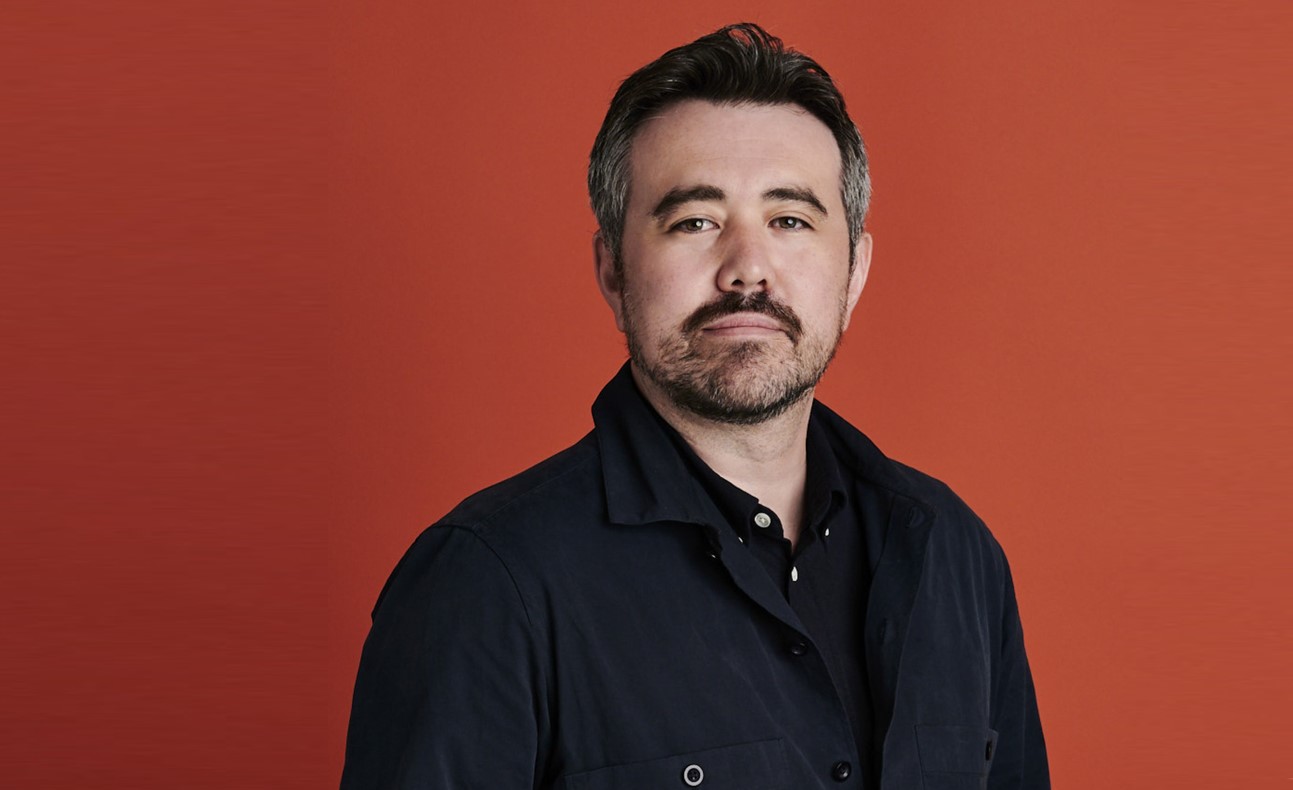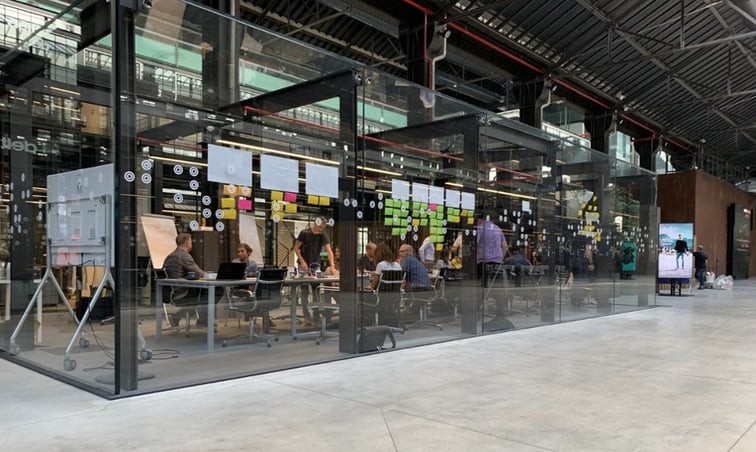Search the latest and greatest job opportunities in sport
 We speak to Rich Mills, Strategy & Design Director at Deltatre to discuss his career journey, how he transitioned to a career in sport and what his current role at the world's leading sports and entertainment technology provider entails. Rich also shares advice to those looking to build a design focused career in the fast evolving sector of sports technology.
We speak to Rich Mills, Strategy & Design Director at Deltatre to discuss his career journey, how he transitioned to a career in sport and what his current role at the world's leading sports and entertainment technology provider entails. Rich also shares advice to those looking to build a design focused career in the fast evolving sector of sports technology.
I feel extremely lucky to have had such a varied design career. I started out in industrial design – designing physical products and experiences rather than digital ones, things like toys, games, computers, medical equipment, homeware, and packaging.
It was a great entry point into researching and understanding the problems and needs of customers and how to solve them. At this point, digital was still in its infancy. But as it matured and demand grew, I began to work on more digital products. I found, as I think a lot of industrial designers did at the time, that many of our skills were directly transferable to the digital realm.
Specifically, I’m talking about user research and an ability to specify a vision so it could be mass-produced. Certainly, working closely with factories and engineers provided a great foundation for working and communicating with developers and coders.
My obsession with research and thinking beyond the original brief has now led me to the innovation space, where I help businesses find new opportunities and then bring them to the market, sustainably. Design is still a big part of the process, but the focus has shifted to include addressing the goals of the business as well as the needs of the user.
Great question! And one that doesn’t have a straightforward answer. It certainly was a more organic journey than a deliberate one.
I’ve always been a massive fan of sports, but previously, designing for sport and entertainment was more niche and there were few studios that specialized in this area. I’ve certainly been involved with various sporting clients over the years, but the opportunity to dedicate myself to the industry had eluded me.
With the growth of digital that has all changed, as the relationship between a fan and their sport has evolved into something much deeper. Now, there are more touchpoints and opportunities for fans to express their fandom. Before, as a fan, your opportunities were largely limited to visiting the stadium to watch a game, perusing the club shop, joining a fan club.
"...I began to seek out the biggest names in the space and which companies were doing the most impressive and exciting things."
Now, there are endless, far more direct ways to engage with your passion, and it’s only going to get even more expansive and immersive with the growth of web 3.0, VR, and the blockchain. The developments across this space present interesting and exciting challenges. Not least because they relate to real human motivation and behavior. For that reason, I began to seek out the biggest names in the space and which companies were doing the most impressive and exciting things.
The first thing I’d say is that you don’t have to be a massive fan of sports. Yes, it can help in some ways, as being a fan of any industry can, but many people are successful in other industries such as banking and insurance without having to be a massive fan of those sectors.
I would say, though, that it’s important to at least understand passion or be passionate about something. It can be anything really, because then you are closer to understanding the mindset for who you are trying to help. You’ll understand that not all fans are the same, that it really is a truly global industry that recognizes diversity and inclusion, and with this knowledge, you can create better solutions.
My focus is to deliver business impact and build confident, multidisciplinary teams that can approach problems and solutions from multiple angles.
I explore new business models within sport, analyze how to leverage technology, and creatively direct how to shape new opportunities into experiences that connect with audiences within the sports, games, and entertainment industries. My expertise is creating innovative, immersive content platforms and services, and launching them in the market.
At Deltatre we partner with global leaders in sport and entertainment. We help them analyze opportunities, grow value, and deliver actionable insights to inform their digital transformation strategies. We craft those opportunities into meaningful and engaging customer experiences while grounding those strategies in an understanding of current and future audiences.
As you can imagine, it’s a very fast-paced industry and the battle for dominance rages in an increasingly crowded marketplace. Many leaders find themselves under pressure to show return on investment quickly.

For us, creativity and design reduce risk and build confidence early in any plan. A good design approach produces smarter ways to connect your business goals to each customer’s needs. Through early research and continuous iteration, we can validate opportunities quickly. Design is a team sport that’s about reducing friction and inertia, and accelerating the delivery of better outcomes.
I prefer to hire based on behaviors and mindset, as skills can always be taught. Too many designers are led by the software they can operate rather than using them to execute their ideas.
In that respect, I look for people who have solid analytical and problem-solving skills. Those who can communicate and articulate their decisions with strong reasoning and engaging storytelling.
Key behaviors that I like to see in a candidate are:
It really is such an exciting time to be part of the sports business, with technology powering new ways for fans to engage and connect with what they love.
Sport provides some of the best use cases for the biggest emerging tech, like the metaverse, NFTs, XR… I could go on. All of these require design and designers. Not only to help find adoption and market fit, but also to make any solution usable and desirable to the end user.
"It really is such an exciting time to be part of the sports business, with technology powering new ways for fans to engage and connect with what they love."
My advice for building a career in this space is try and understand the mind of a fan – what motivates and drives them. Next, try to get to grips with the business side of sport – how value is created and distributed.
Sport, unlike other industries, isn’t necessarily as linear as “make product > sell product.” There are many other stakeholders involved – rights holders, sponsors, and brands, for example. So, understanding their problems and needs are as paramount as the need of fans themselves.
Find more great articles to learn about the sports industry on our Learn: Knowledge Hub 
Search the latest and greatest job opportunities in sport
In the world of professional sports, sponsorship represents a significant source of revenue and plays a vital role for t...
Read moreThe sports industry is a vibrant and multifaceted industry, made up of a diverse range of sectors that shape its global ...
Read morePablo Romero, director of protocol at Sevilla FC and lecturer in the UCAM Master's Degree in Sports Management, shares t...
Read more